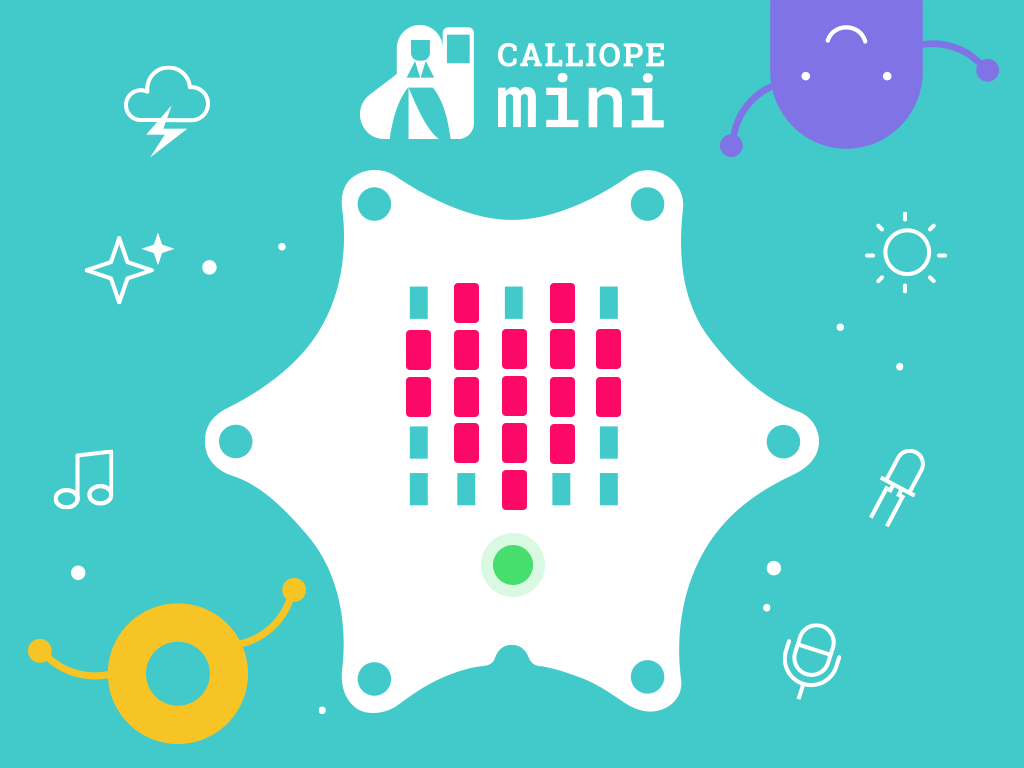
Calliope mini Swift Playground
The Calliope mini offers children from primary school upwards a playful approach to the digital world. In small and simple steps, the students get to know the mini computer and experience their first successes in programming. With the Calliope mini Swift Playground you can build your own projects and prototypes for your Calliope mini.
The Calliope mini Playground can be used without any previous coding skills and is an excellent introduction to programming. The Swift programming language is made easy to understand by entering and adjusting parameters. The children are enabled to understand and change the program code.
- Class 3+
- Offline, mobile usable
- No previous programming skills necessary
- Fast, wireless transmission of the code to the Calliope mini
- Interdisciplinary use
- Development of digitally controlled physical prototypes
- Learning programming creatively
- Easily interrogate and use Calliope mini sensors
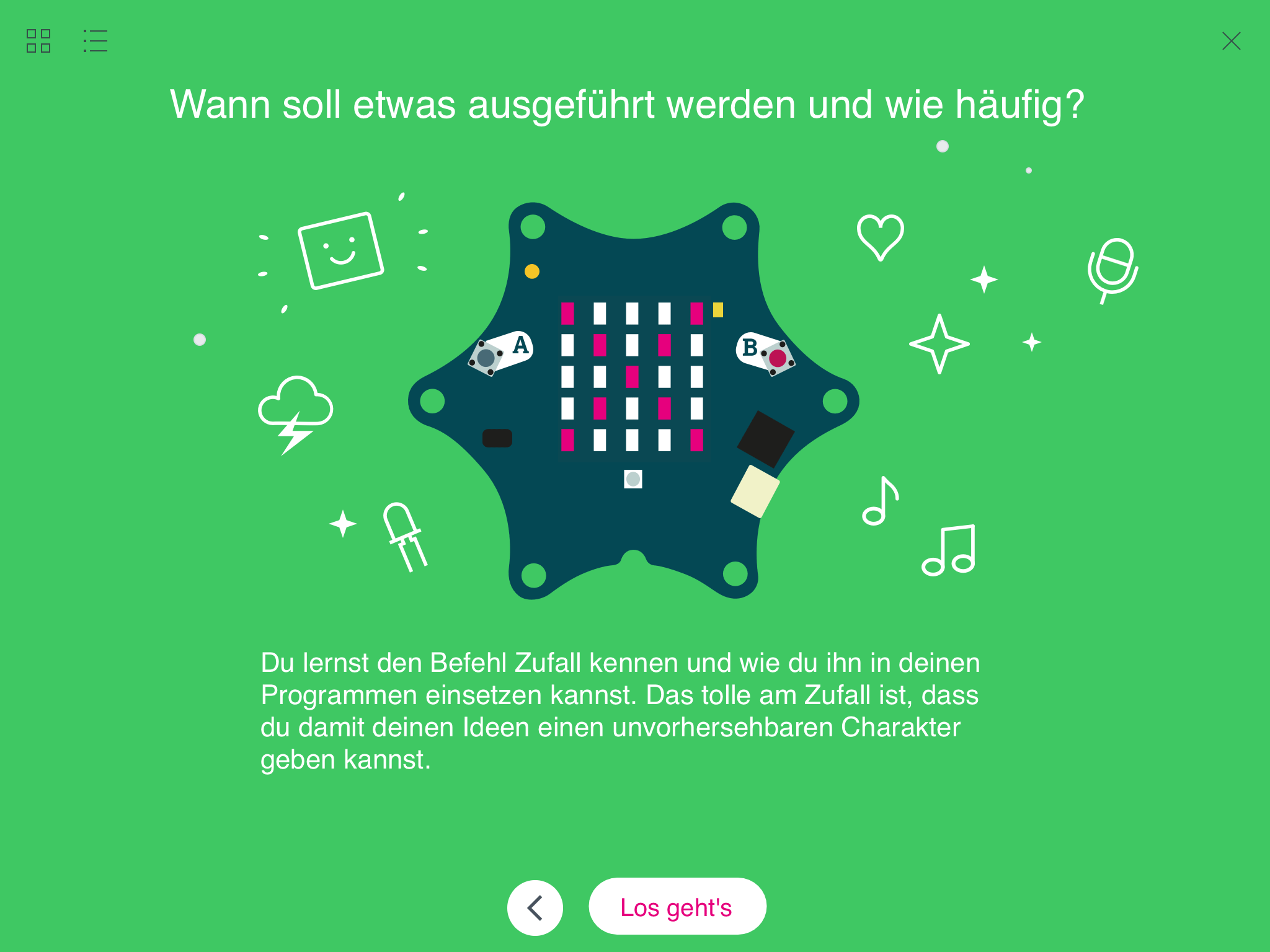
The structure
The Calliope mini Playground is divided into four chapters, to experience the basic functions of the Swift Playgrounds app and the Calliope mini in a playful way.
In individual exercises, the students get to know the Calliope mini and its functions. They connect it to the iPad and transfer their programs directly via Bluetooth.
Create the code on the left side of your screen and immediately see the results on Calliope mini - with just one click.
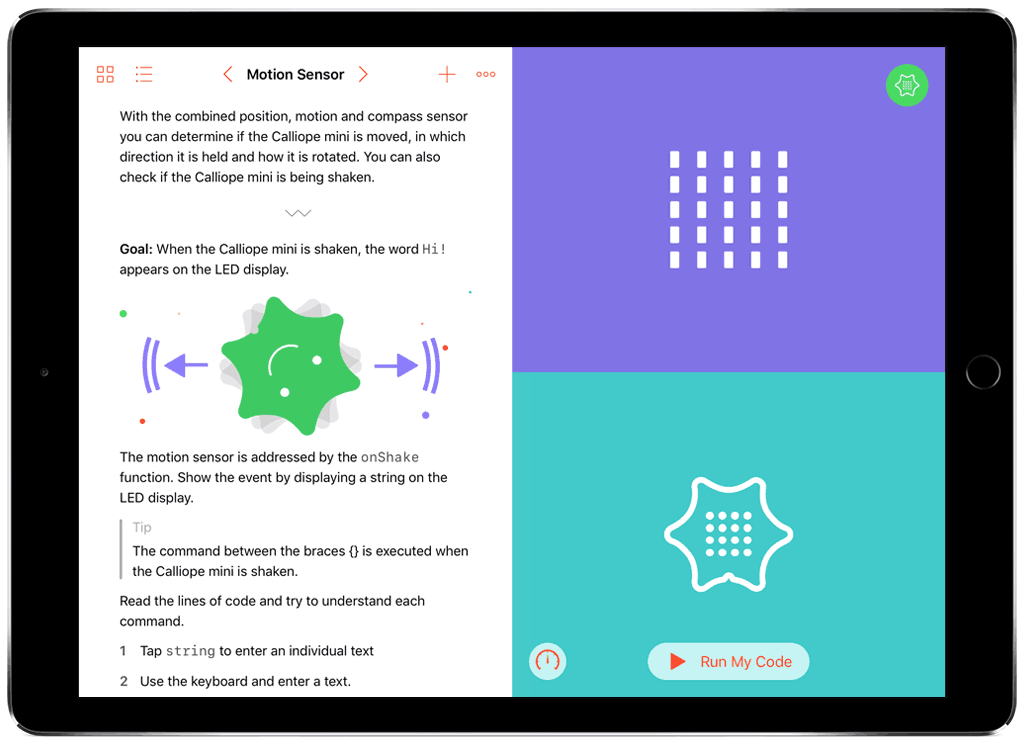
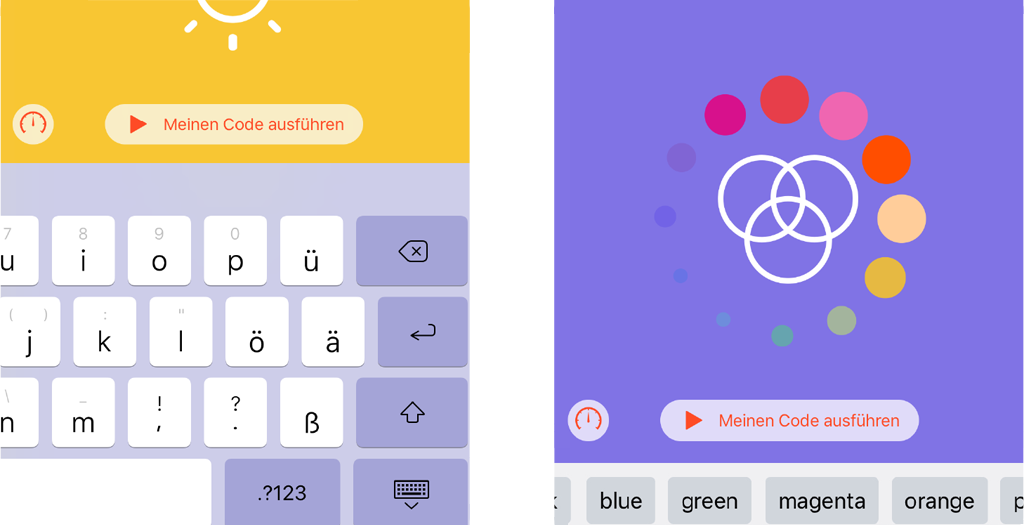
The parameters can easily be entered using either the keyboard or the suggestion bar.
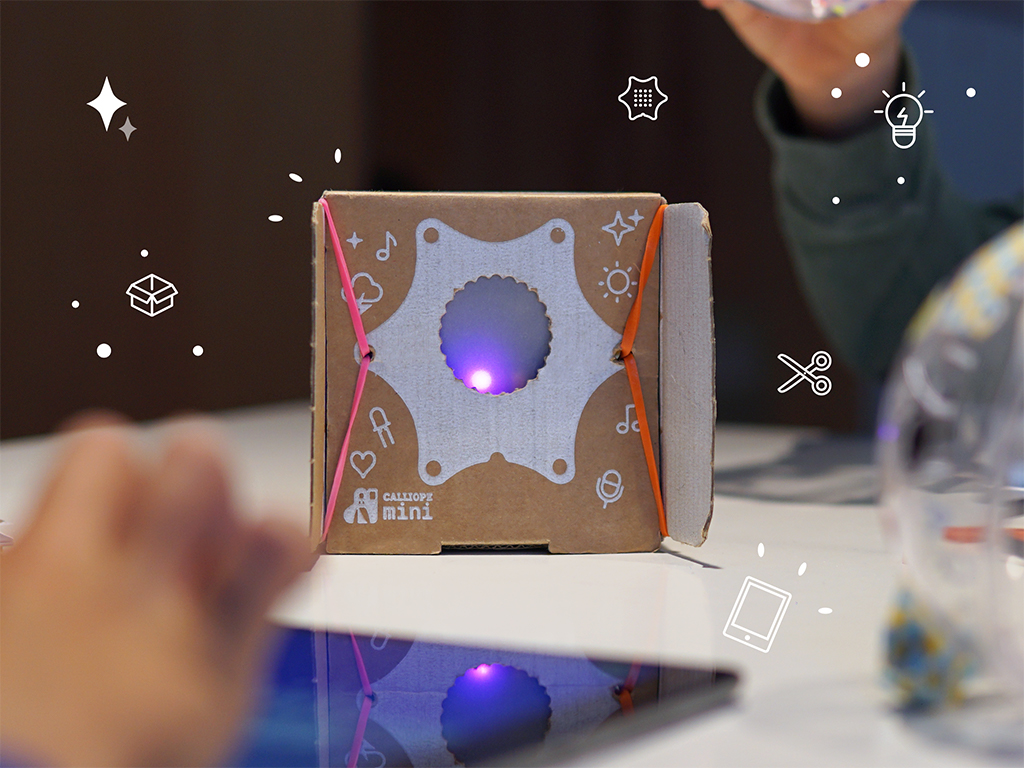
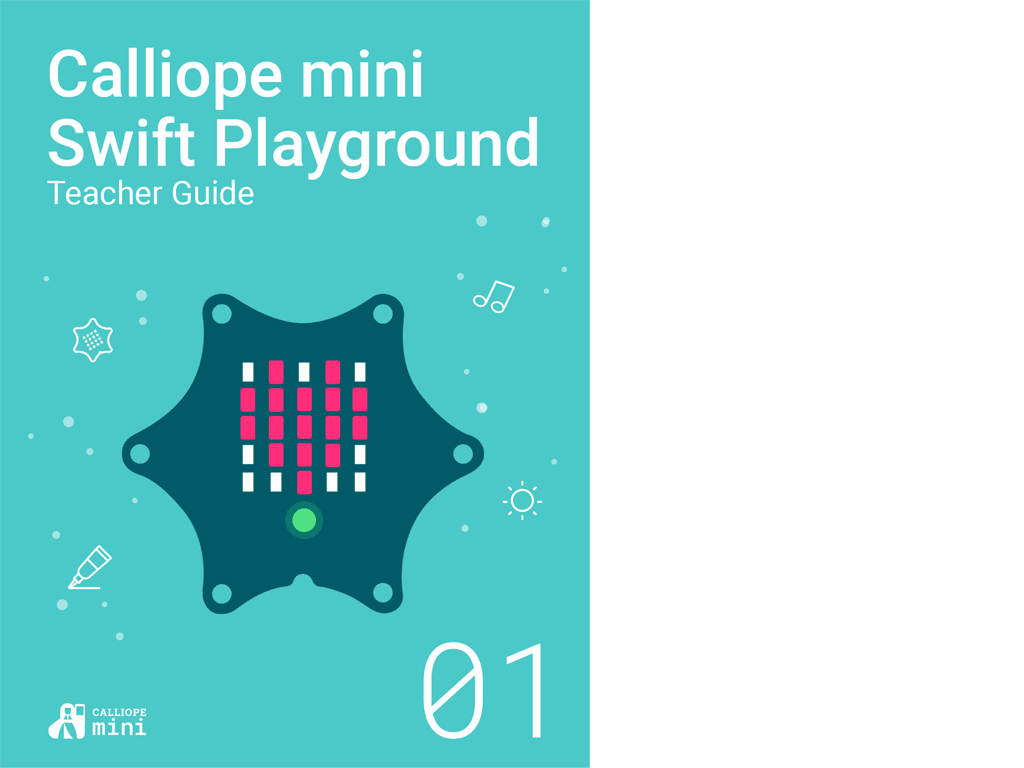
Teacher guide
This book serves as a guide for teachers. Simple, easy to understand units serve as suggestions for teaching with the Calliope mini. Playground focuses on the sensors, the input and output functions of the Calliope mini and the possibility to combine these with the help of Swift to develop their first digitally controlled prototypes.
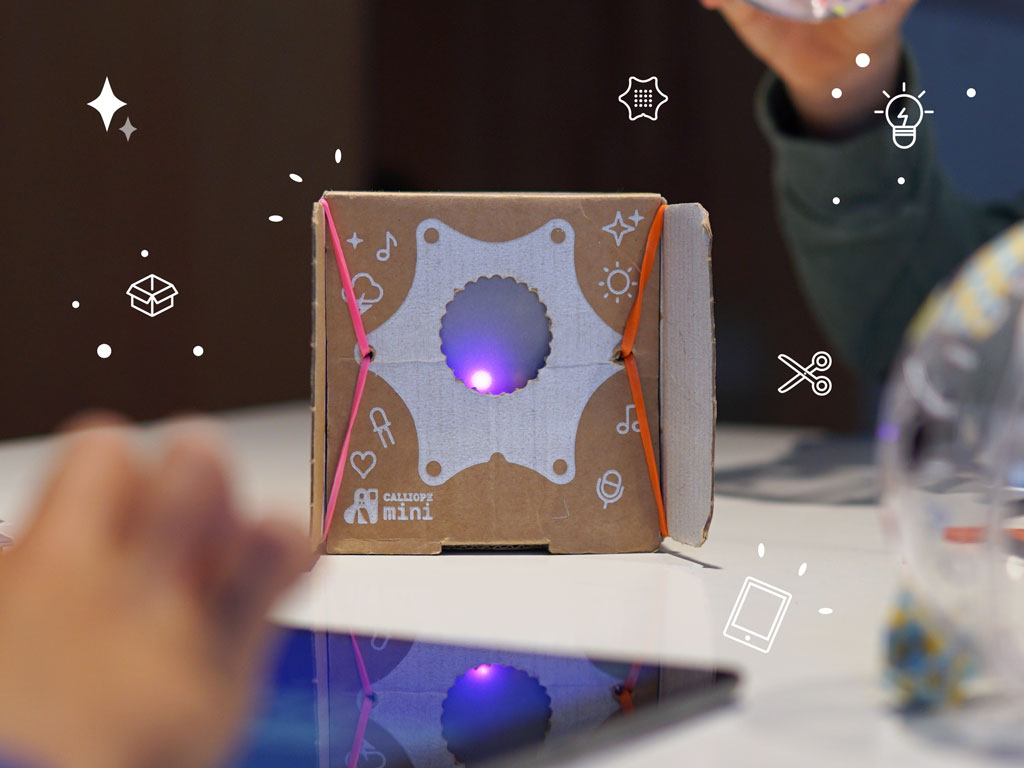
- Suggestions for lesson planning
- Solutions to the programming challenges of the Calliope mini swift Playgrounds
- Step-by-step instructions / creative handcrafts within the projects
- Working material digital and as print version
- Tips and tricks
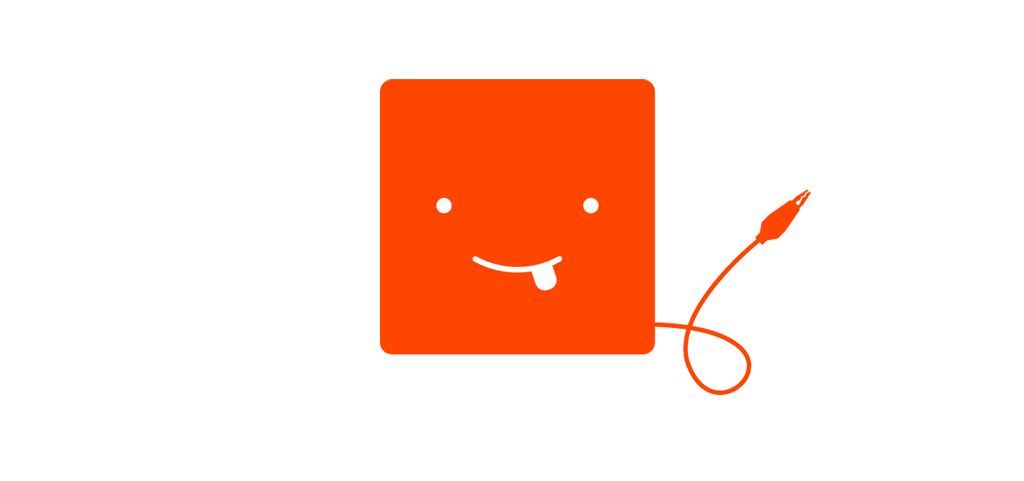
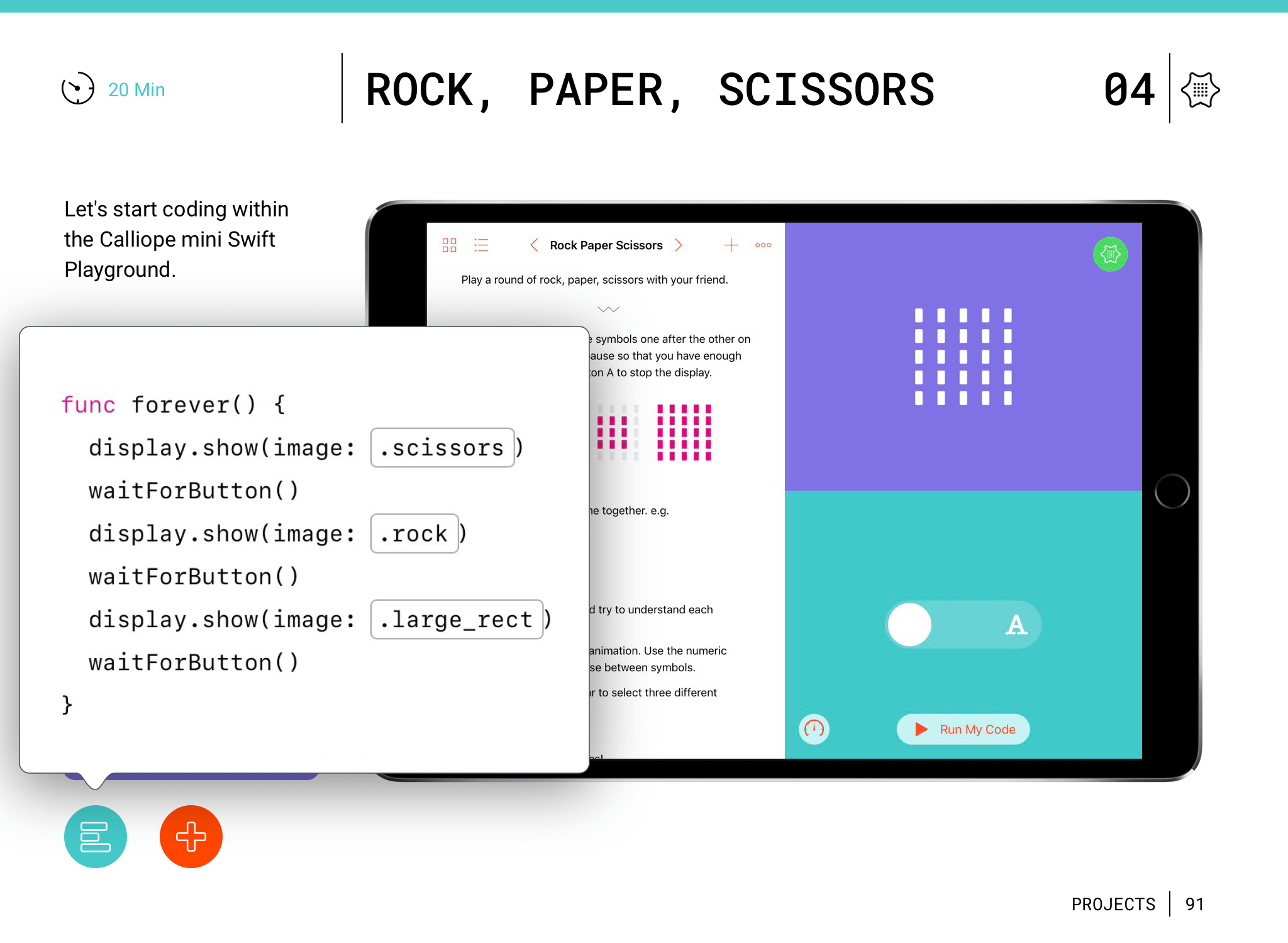
This book is a guide for teachers: In clear, easy to understand units, suggestions are given for teaching with the Calliope mini. The playground focuses on the sensors, the input and output options of the Calliope mini and the possibility of combining them with Swift to develop the first digitally controlled prototypes.

The lesson planning, exercises and materials in this book foster the development of relevant skills around the topics of "the digital world" and "programming". Furthermore, the book provides students with skills that help them to deal individually with a constantly changing world.
All units can be used in a modular and flexible way, so that some exercises can be skipped or extended if necessary.
The book includes suggestions for activities in which students can document, practice, reflect and review their progress.
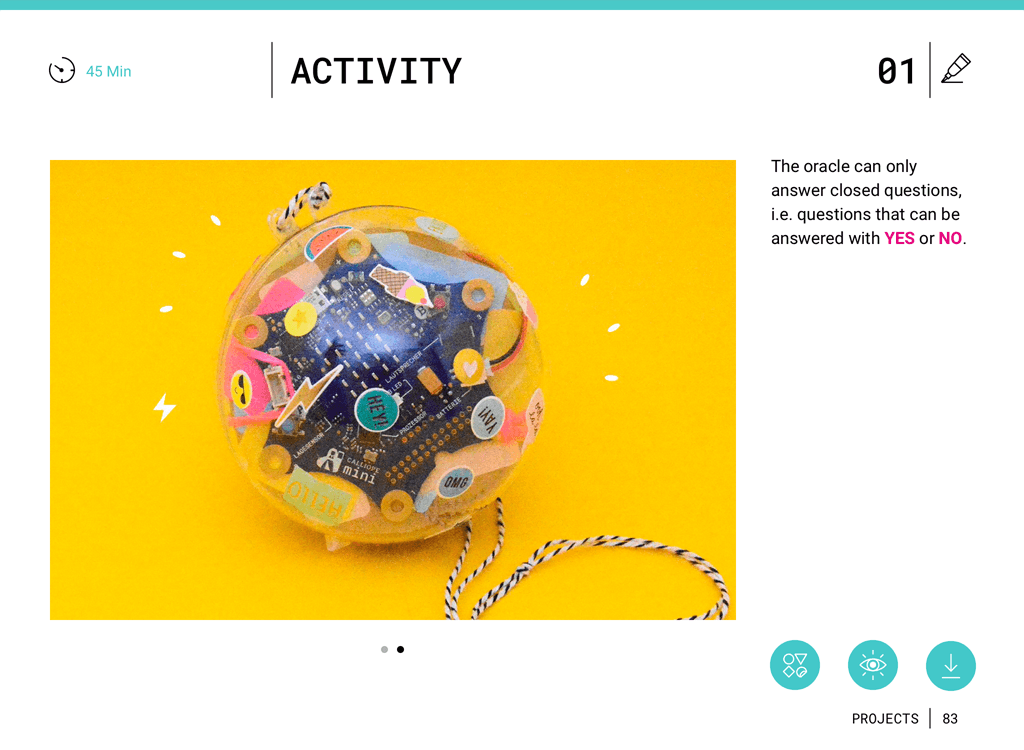
The Calliope mini Playground is suitable for the students' first encounter with the Calliope mini. Crucial computer principles are demonstrated gradually and directly tested out.
The main idea relevant for each unit is presented and introduced through conversations, games or exercises. Moreover, supporting activities extend and consolidate understanding of the main idea. Subsequently, the students discover how this fundamental idea is reflected in the digital world with the Calliope mini.
At the end of each unit, all ideas and programming principles learned in the units have to be used in a small final project. The projects are small imaginative challenges that go beyond the mere execution of programming by providing a framework for programming.




